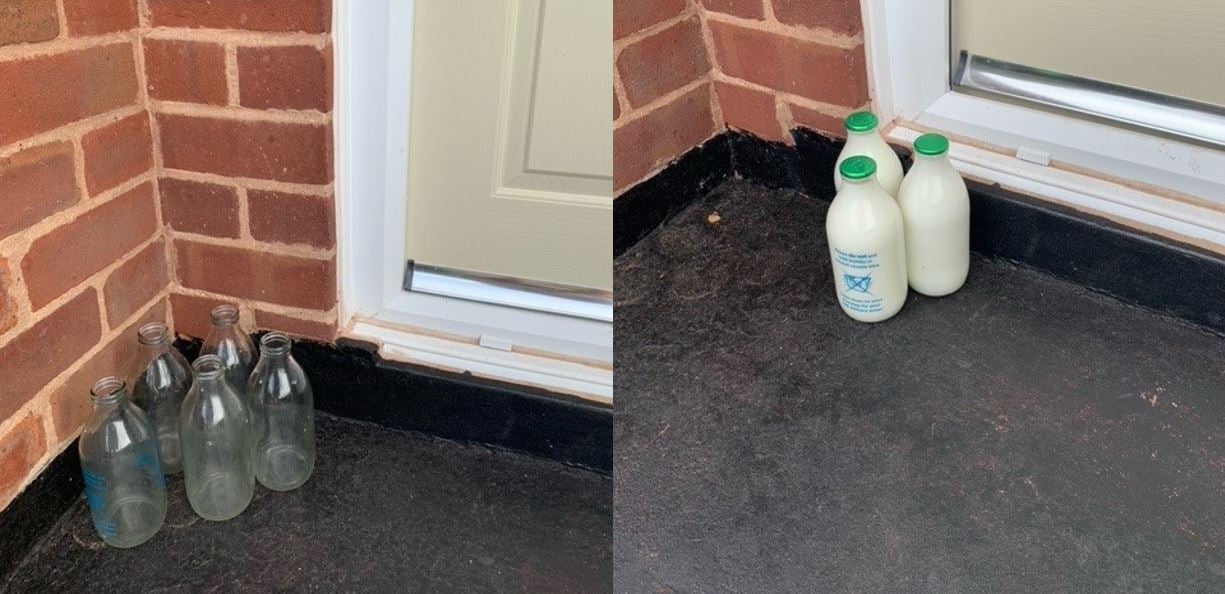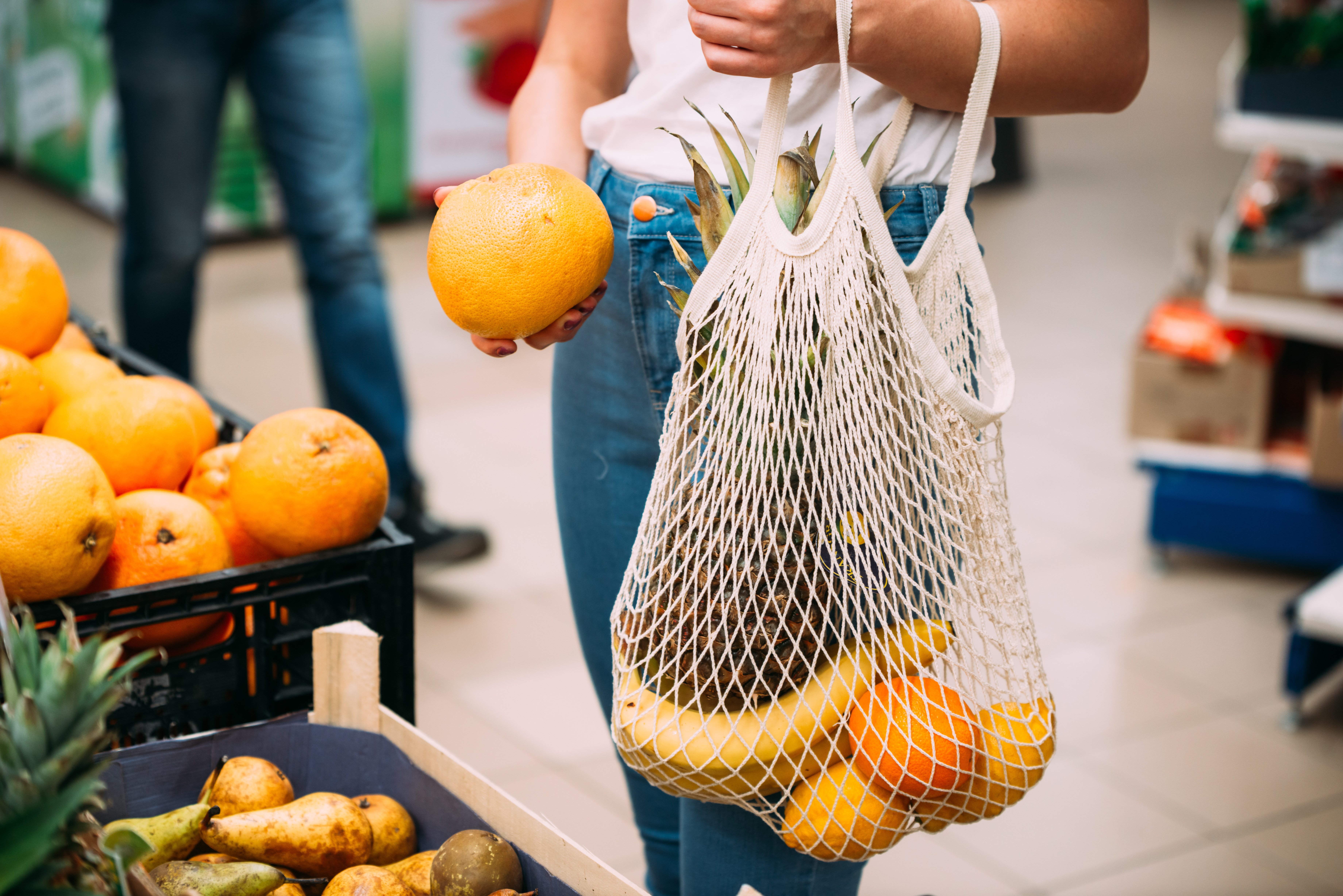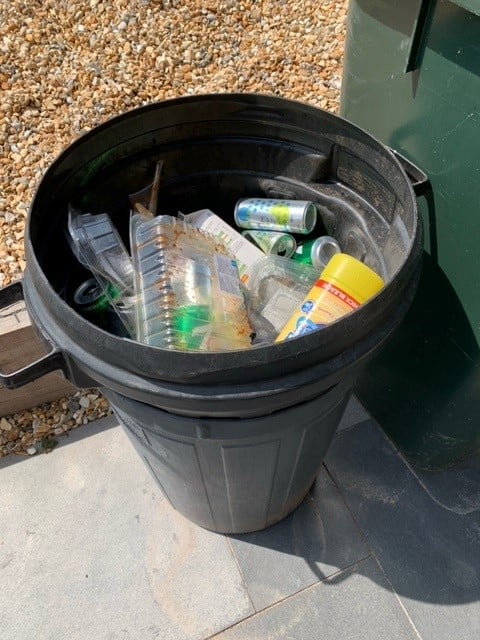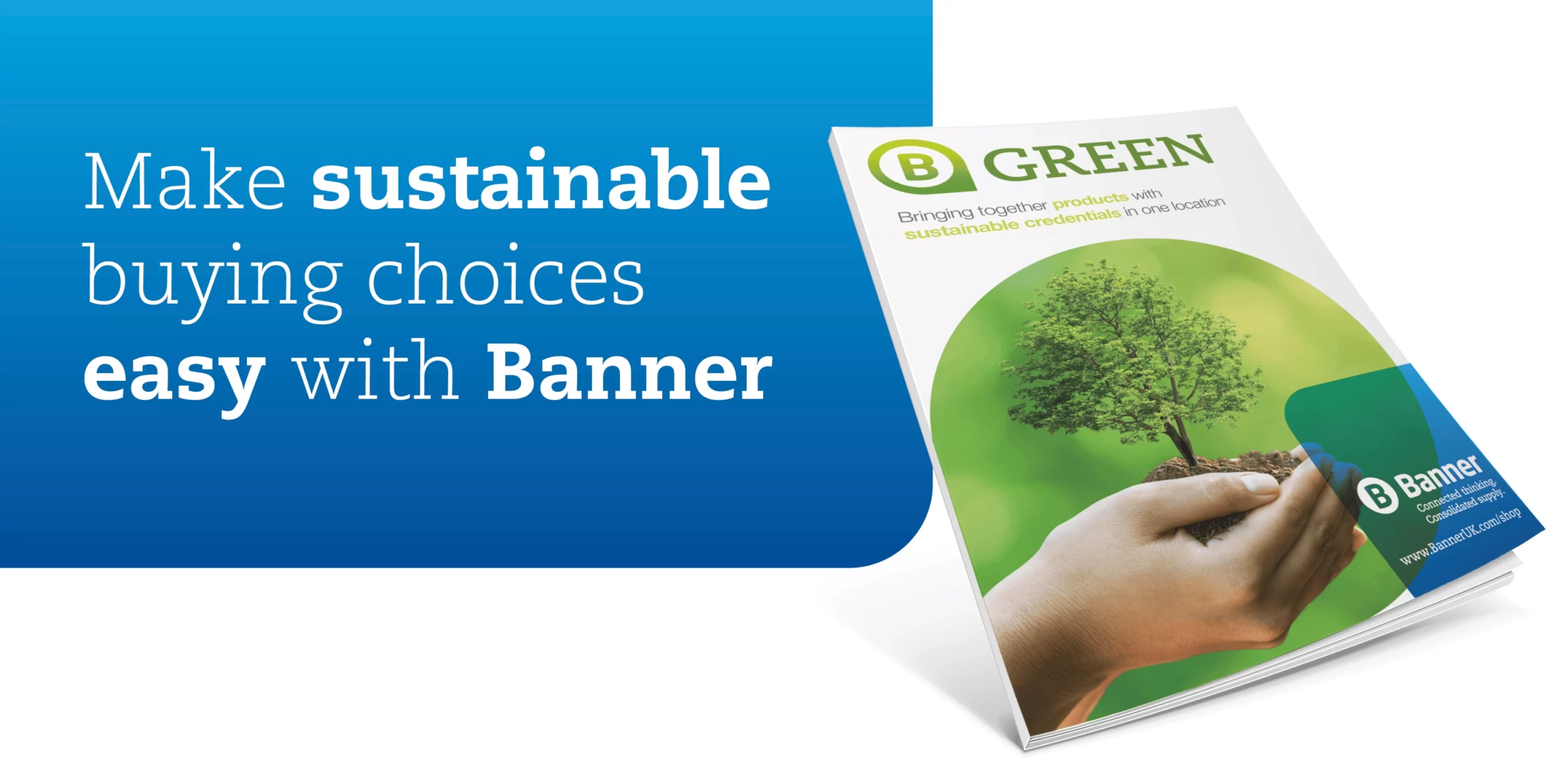With Plastic Free July now over, Julie Hadley, CSR and Social Value Manager at Banner, shares the wins, challenges, and reflections that occurred in her household throughout the month of cutting down on plastic waste.

You might expect, given my role, that I’d be a paragon of virtue, but like everyone else I’m time poor and with two teens in the house, I sometimes feel I’m on a hiding to nothing when it comes to the amount of plastic passing through here! It’s harder than you think to go plastic free and requires a real behaviour change, but with my two girls now on board, I’m quite pleased with the result.
The trigger was guilt, especially with the knowledge that lots of plastics are ˜wish-cycled’ you pop it in the recycling and hope your local authority deals with it! Often though, the plastic we put for recycling goes for incineration, so the only way to deal with it was to cut down what I brought into the house.
Given that I’m the one doing most of the shopping, the buck stops with me ¦
Plastic free July was a good opportunity to tackle my mixed waste recycling output. Our general waste is pretty minimal (around half to a third of a tall wheelie bin per fortnight) as I employ the following strategies:
- A compost bin in my garden for all fruit and veg peelings and cores
- Little cooked food waste as I plan food with portions and either freeze or leave any left-overs for lunch next day
- Salad drawer soup/stock to use up end of life veg and salad
- Cardboard and paper are recycled separately
- Plastics, cans and bottles are mixed separated from other waste and put in to mixed recycling
- Batteries and electricals I pop to one side for a visit to the local recycling centre
- Soft films and bags are recycled at my supermarket
With the above as my start point, I had a look at the mixed recycling bin contents and I’m sad to admit that our mixed recycling was 2 bins a fortnight, this included all glass, plastic and cans, of which I’d say plastic made up half.
The first bulk item was milk cartons.
How we get through so much milk is beyond me, but I decided to ˜go glass’ and get milk delivered for July at least. It’s been expensive at £6 per week, but the carbon footprint isn’t as bad as I feared as they deliver in this area only twice per week, not daily. I also discovered that my local shop does a glass bottle exchange with a deposit, on local milk from a Shropshire dairy. On the two occasions we ran out on a Sunday, I was able to walk down the road, grab a fresh bottle and return an old bottle, so no ˜emergency’ plastic purchases and I burned a few calories in the process, whilst supporting a small employer.

Shampoo, Conditioner and Body Wash
The number of lotions and potions being experimented with, and the number of bottles on the bathroom windowsill was terrifying! My eldest (who won’t thank me for mentioning her bleach blonde hair) agreed to stop buying blue and purple shampoo and conditioner (which helps to ˜tone’ and upkeep the shade of her hair) and instead return to her natural ˜brond’. As the last of the bottles was used up, I kept back the standard sizes and ventured to my local refill shop to see if I could get something to suit us all.
On the whole, that’s been a success with brands like Faith In Nature who offer a selection of shampoos and conditioners. Particularly ones with natural ingredients, plastic-free packing, and refill products, meaning less waste goes to landfill.
Interestingly, price-wise, both were actually half what I was paying in my local supermarket for a cruelty free, paraben and sulphate free product in a 100% recycled plastic bottle.
So now the bottles are twice used and the products are better for us too! I’ll be heading back there for other products including washing liquids, and I’m planning for it to become part of my Saturday ritual. The trick seems to lie in timing keeping back the bottles when they are empty and having a bit in reserve. Just a case of being more prepared really, rather than grabbing toiletries with a weekly shop.
Shopping Bags
Yet again, one of my bad behaviours was just ˜nipping’ to the shop for a few bits on the way home and needing a bag. So, I’ve invested in some of the fabric, fold-up, tote bag types that sit in my handbag. I just keep them there and it’s saved about six plastic ˜bags for life’ a month. Nothing major and of course they were not in my bin every fortnight, but I have felt so much better every time I’ve been to the supermarket, safe in the knowledge that I wasn’t making an unnecessary purchase.
Fruit, Veg and Meat
What a nightmare! I tried this several ways round. Feeling adventurous I thought I’d plan a meal around veg I could buy loose. In Aldi, that’s nigh on impossible. I think I could have managed red pepper surprise! In my local Sainsbury’s the pickings are almost as slim courgettes, carrots and peppers along with a few fruits. However, I object to having to pay more for unpackaged items! 6 granny smith apples for £1.60 in plastic or £1.80 for six individuals! Surely the cost to pack them is more than the cost to not pack them? Can you sense my frustration?

On a positive note though, I have used my local butcher more. He produces beautiful quality meats packaged in a coated, paper envelope which is sealed with heat, so no plastic containers or trays. I don’t buy a lot of meat, but when I do I like to buy free range and high welfare, which of course makes it expensive, so local and little is my best solution.
Unfortunately, no change in my practice of buying fruit and veg in the softer plastics, which can at least be recycled via my local supermarket recycling point. I just ensure I have a bag on one side for them and do a drop once a month, but wherever I can, I’m buying products packaging free.
Finally then, the results:
I’ve halved the contents of my recycling bins, putting out only 1 per fortnight during July. We’ve also reduced the number of bottles in the bathroom by three quarters and my carrier bag collection has not increased once! So this is positive progress.

I’m fully aware that I might have been able to do the process completely differently, but without making the whole thing a misery, I just wanted to see if we could make small changes to make a difference, and we have.
I definitely think there’s loads more mileage in using the refill shop, where they also do dried foods, and I’m pleased that the products are better for our health and more ethical too, so that’s a winner along the full chain for me.
Similarly, I’ve enjoyed shopping locally I am really lucky to have some good shops within a 3 minute walk and I think that’s positive for the local economy. Costs are often higher and I think I’ll have to balance out the savings on some things with extra expense on others, but my conscience definitely feels better!
Do you have a Plastic Free July story to share? Or has this inspired you to reduce your plastic waste? Let us know!
B Green
View our NEW B Green catalogue – the quick and easy way to make sustainable product choices by bringing together products with sustainable credentials in one location.

Procurement Insights: For more insights join Banner on LinkedIn or follow us on Twitter
